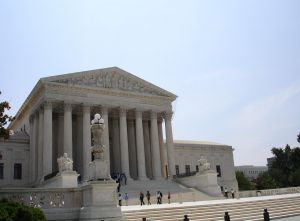This week, Associate Director Maneesha Mithal of the Federal Trade Commission (“ FTC”) testified before the Senate Committee on Homeland Security and Governmental Affairs, detailing the FTC’s renewed focus on the online advertising industry. Specifically, the Associate Director made clear that the FTC is now aggressively targeting issues relating to privacy, spyware/malware and data security.
FTC”) testified before the Senate Committee on Homeland Security and Governmental Affairs, detailing the FTC’s renewed focus on the online advertising industry. Specifically, the Associate Director made clear that the FTC is now aggressively targeting issues relating to privacy, spyware/malware and data security.
Privacy Concerns Relating to Online Advertising
The FTC has recently increased its efforts to protect the privacy of consumers, especially with respect to children under the age of 13. As we have discussed previously on this blog, last year the FTC amended the Children’s Online Privacy Protection Act (COPPA) to strengthen online privacy protection for children under 13 years of age by giving parents an increased role in their children’s online activities (including via mobile devices).
With the COPPA amendment and regulations beginning to take root, the FTC Associate Director testified that renewed focus would be placed on online advertising directed towards adults as well. The FTC encourages businesses to have an open policy relating to consumer data and provide consumers with a simple way to learn what data is collected about them and how to modify data collection preferences.
Spyware Concerns Relating to Online Advertising
As detailed by the FTC Associate Director, there are three (3) core principles that the FTC will assess when evaluating spyware and malware:
1. “a consumer’s computer belongs to him or her, and it must be the consumer’s choice whether to install software;”
2. “buried disclosures about material information necessary to correct an otherwise misleading impression are not sufficient in connection with software downloads;” and
3. “[consumers] should be able to disable or uninstall any software they do not want on their computer.”
Every business should consider these principles when operating an online advertising campaign.
Data Security Concerns Relating to Online Advertising
In terms of data security, the FTC Associate Director is presently focused more on consumer education. However, the testimony hinted that stronger data security laws may be coming in the future and that the FTC would fully support any such legislation. Specifically, the testimony revealed that the FTC does not believe that the online advertising industry can develop and enforce self-regulating mechanisms and that stronger federal laws, including statutory civil penalties, are needed. Notwithstanding the foregoing, the FTC is encouraging businesses in the online advertising space to develop industry standards and compliance measures.
The Bottom Line
This testimony serves to put those in the online advertising industry on notice. Entities in the advertising industry should take heed and ensure that their online advertising campaigns are compliant with FTC regulations.
If you are interested in learning more about this topic, please e-mail us at info@kleinmoynihan.com or call us at (212) 246-0900.
The material contained herein is provided for informational purposes only and is not legal advice, nor is it a substitute for obtaining legal advice from an attorney. Each situation is unique, and you should not act or rely on any information contained herein without seeking the advice of an experienced attorney.
Attorney Advertising



